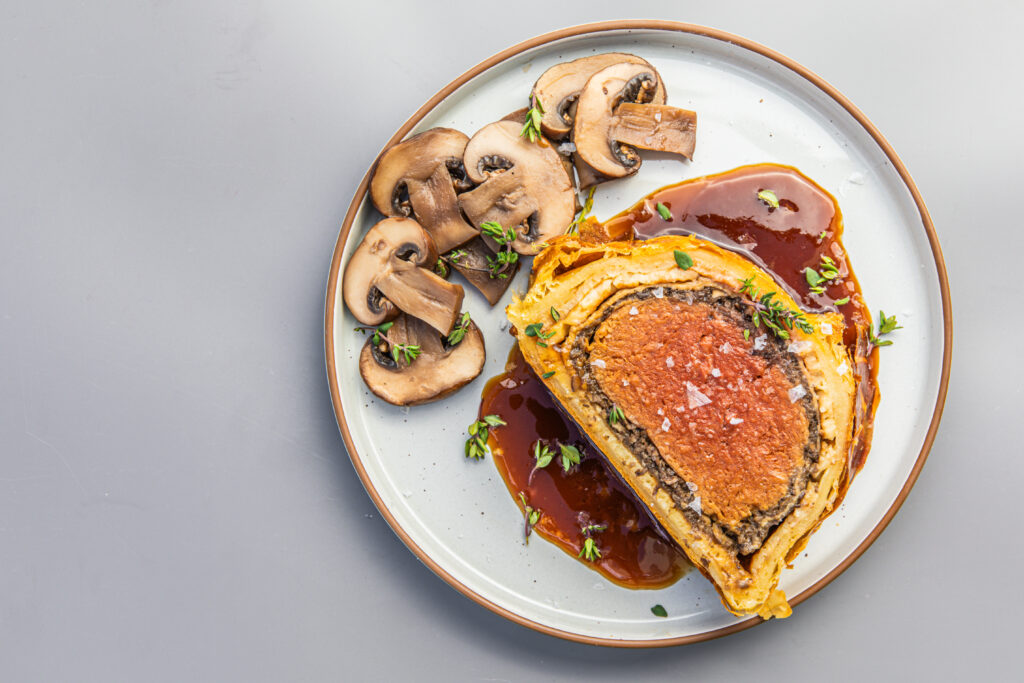The Better Meat Co: US Government Grants $1.5M to Mycoprotein Maker for New Factory
4 Mins Read
California’s The Better Meat Co has received $1.5M from the US Department of Defense to scale up its manufacturing capacity via a new mycoprotein facility.
US food tech startup The Better Meat Co has won $1.48M in a grant from the Department of Defense (DoD) to scale up its mycoprotein ingredient for meat analogues.
The funding was part of the government agency’s Distributed Bioindustrial Manufacturing Program (DBIMP), which aims to advance the US’s fermentation capacity to boost its defence material supply chain across five focus areas: food, fuel, fitness, firepower and fabrication.
The Better Meat Co makes Rhiza mycoprotein from the Neurospora crassa, a fungi strain used in traditional fermented foods and drinks like Brazilian spirit tiquira, Indonesian staple oncom, and Roquefort cheese in south France.
The company plans to use the capital to expand its production capacity and open a new bioproduction facility for its shelf-stable, high-fibre, high-protein ingredient. The location of the factory is yet to be determined, according to the DoD.
“The United States will be greatly advantaged by taking a leadership role in biomanufacturing, especially when it comes to efficient, innovative methods of food production,” said Paul Shapiro, co-founder and CEO of The Better Meat Co.
A welcome development for The Better Meat Co

The investment comes weeks after The Better Meat Co’s Rhiza ingredient received a ‘no questions’ letter from the Food and Drug Administration (FDA), granting its mycoprotein GRAS (Generally Recognized as Safe) status.
But the product has already been on the market for a while, since the company had already obtained self-affirmed GRAS status, enabling it to supply the protein ingredient to restaurants in North California for steak, carne asada, and foie gras analogues.
Its legacy plant protein has been part of Perdue Farms’ Chicken Plus blended meat line since 2019, but meat analogues from Rhiza – derived from filamentous fungi – have been under development by the likes of Hormel Foods and Maple Leaf Foods. The company has signed multiple letters of intent and offtake agreements with major CPG brands in both the US and Asia.
Based on its dry mass, Rhiza contains 30g of fibre and around 45g of protein per 100g, with a protein digestibility score of 0.87-0.96 (similar to casein, beef and eggs). According to its GRAS notice, the mycoprotein can be used to make beef, pork, chicken and seafood analogues.
The company recently also shifted to a continuous fermentation approach, which entails putting materials into bioreactors at the same time the finished product is being harvested. This has allowed it to improve yields and reduce production costs by 30% – even if no further R&D advancements are made, the ingredient will now cost the same as commodity beef when produced at scale.
Speaking of which, The Better Meat Co is currently using a 9,000-litre fermenter, and plans to use the DoD grant to scale up to a 150,000-litre vessel, Shapiro told FoodNavigator.
The government funding will be welcome to the startup, which has faced challenges in raising capital, thanks in large part to an 18-month legal battle with fellow mycelium meat startup Meati. Now that the dispute has been resolved, The Better Meat Co is doubling down on its fundraising efforts with another investment round in the months ahead.
DoD looks to amp up bioeconomy, but backed out of cultivated meat project

The DBIMP, established earlier this year, has so far shelled out $23M in grants to 13 startups, with funds of up to $2.5M aimed at shoring up the US’s biomanufacturing potential. Companies can apply for follow-on funding of up to $100M, and the DoD plans to invest in more than 30 projects in total.
In this round, The Better Meat Co joined six other startups that benefited from the state capital: Battelle, Modular Genetics, Genomatica, Industrial Microbes, ZymoChem, and Biosphere.
These investments are in response to a 2022 executive order by the Biden-Harris administration, which focuses on advancing the country’s bioeconomy.
“President Biden called on the Department of Defense to assess how the agency can use biotechnology to make our supply chains more resilient, create jobs at home, and strengthen America’s economy,” explained Heidi Shyu, undersecretary of defence for research and engineering.
“These major investments will help answer his charge to harness the full potential and power of biotechnology to advance national and economic security,” she added.
The DoD made major strides when it added $450M to the public-private biomanufacturing consortium BioMade’s budget last year. “Expanding the Department of Defense’s biotechnology capabilities is key to maintaining the United States’ supply chain and military superiority,” said Shyu.
That said, the DoD rolled back its call for funding applications to develop cultivated meat for military rations, as part of an effort to make the military food system more climate-friendly. The department withdrew its efforts after lobby pressure from the National Cattlemen’s Beef Association, a livestock group that worked with seven Congress members.



